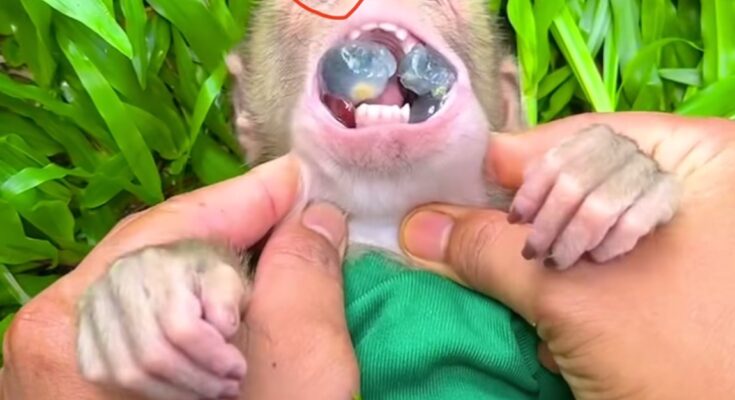Many new exotic-pet owners wonder how to help their baby monkey grow strong and healthy as quickly as possible. While it’s important to understand that no animal should be forced to grow beyond its natural pace, you can support healthier development by providing correct nutrition, enrichment, and care. Proper early-life support ensures your monkey matures without stress or preventable health issues. Here’s what responsible owners should know.
1. Prioritize a Species-Appropriate Diet
A baby monkey’s growth depends heavily on the nutrients it receives during the first months of life. Different species—such as capuchins, marmosets, squirrel monkeys, or macaques—have slightly different dietary needs, but the fundamentals remain similar.
-
Milk formula: For very young monkeys, a high-quality primate milk replacement is essential. Cow’s milk is not suitable and can cause digestive problems.
-
Balanced solids: As they begin to transition to solid foods, offer soft fruits, vegetables, boiled eggs, and specialized primate biscuits.
-
Vitamins and minerals: Calcium, vitamin D3, and essential fatty acids support bone growth and brain development.
A nutritious diet won’t unnaturally speed up growth, but it prevents stunting and ensures the healthiest possible development.
2. Create a Low-Stress, Enriched Environment
Stress is one of the biggest factors that slows growth in primates. Baby monkeys require emotional security, mental stimulation, and opportunities to engage in natural behaviors.
Provide:
-
Warmth and comfort, including safe blankets and a cozy sleeping space
-
Climbing structures, ropes, and branches to encourage physical development
-
Toys that challenge coordination and curiosity
-
Routine contact, since baby monkeys need social bonding for hormonal stability
A calm, enriched environment keeps stress hormones low and allows their bodies to focus on growth and immune development.
3. Encourage Regular Movement and Play
Just like human children, baby monkeys develop strength, coordination, and bone density through exploration and play.
Safe opportunities for climbing, jumping, and grasping help:
-
Improve muscle tone
-
Strengthen bones
-
Boost confidence and learning skills
These physical benefits indirectly support healthy growth and prevent developmental delays.
4. Provide Consistent Veterinary Care
Regular checkups with a primate-certified veterinarian are essential. Baby monkeys are vulnerable to infections, parasites, and nutritional deficiencies.
A vet can:
-
Monitor growth rate
-
Recommend diet adjustments
-
Check for early signs of metabolic bone disease
-
Provide vaccinations and parasite prevention
Addressing problems early ensures your monkey stays on track developmentally.
5. Support Natural Social Development
If possible, allow your baby monkey to interact with others of its species. Social learning develops cognitive skills and emotional resilience—both necessary for healthy maturation.
Even if kept as a single pet, the monkey needs daily interaction, grooming time, and bonding with a trusted caregiver.
Final Thoughts
You cannot—and should not—force a baby monkey to grow faster than nature intends. What you can do is create the best possible conditions for strong, healthy, and confident development. Through proper nutrition, enrichment, veterinary care, and emotional bonding, your baby monkey will grow at an optimal pace and become a well-adjusted adult primate.
If you need, I can also generate SEO titles, meta descriptions, or image prompts for this article.



